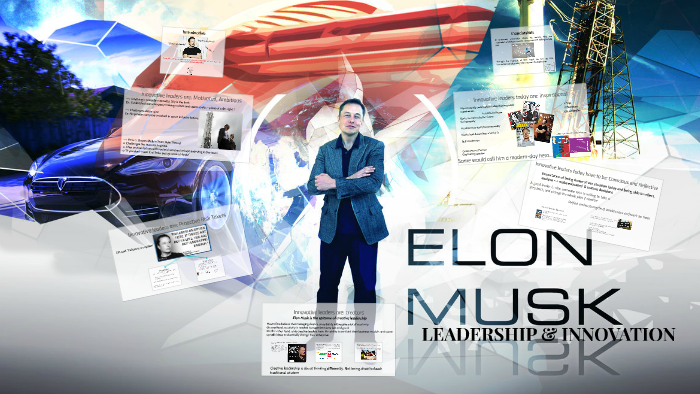
Audience
- Sentiment: mixed
- Political Group: liberal
- Age Group: 25-40
- Gender: male
Overview
- Elon Musk’s management style is characterized by chaos and boldness, attracting both praise and criticism.
- Musk’s influence is extending into the federal government, raising concerns about potential instability and chaos.
- Lessons learned from his management of Twitter highlight the risks involved in rapid, radical changes.
Elon Musk’s Management Style: Chaos or Innovation?
When most people think of Elon Musk, they picture the visionary behind SpaceX and Tesla. Known for his ambitious goals—including colonizing Mars and making electric cars mainstream—Musk is often celebrated as a genius. But on the other side of that genius lies a controversial style of management that can sometimes feel more like a rollercoaster than a steady climb. Recently, Musk has shifted gears, taking his unique brand of leadership from the tech world into the realm of government. With this shift comes a wave of buzz, some excitement, and a lot of skepticism. Let’s dive deeper into his management style, the implications of his control over parts of the federal government, and how this might play out in the future.
A Mind Like No Other
To understand Musk’s style, we need to go back a bit. He’s a guy who doesn’t do things halfway. Whether he’s launching rockets or running a social media giant like Twitter (now X), he looks for radical changes. If you remember the news from a few years ago, Musk made headlines for how he handled Twitter when he took control. It was nothing short of chaotic!
When he bought Twitter, Musk quickly made a series of unexpected decisions. Thousands of employees were laid off, much like a teacher cutting students from a project last minute. This sudden change left many feeling uncertain and a bit lost. Then came the drastic cost-cutting measures that left the platform scrambling to maintain its services. Musk seemed to operate under a “do it my way or the highway” philosophy—one that has been both praised and scorned.
People often talk about Musk’s boldness, and while that can lead to groundbreaking innovations, his methods also carry a lot of risk. For example, laying off employees can create an environment filled with fear and uncertainty. Former employees have come forward, sharing stories of how the intense pressure and ideologically driven mandates affected the workplace culture, creating an atmosphere where people were constantly looking over their shoulders.
A Rocket to the Federal Government
Now, here’s where things get even more interesting. Musk’s influence has crept into the federal government. Recently, he’s been gaining control over parts of it, and many are watching closely to see how his management style will translate in this new arena. Different entities have unique regulations and a solid framework of civil service protections. This structure is meant to ensure that the government runs smoothly and fairly—which is somewhat the opposite of Musk’s more freewheeling approach.
Critics of Musk are raising alarm bells, warning of potential chaos as he injects his unorthodox methods into a system that needs stability and continuity. Imagine if a teacher decided to change the entire school’s curriculum overnight without consulting anyone. It could lead to confusion, anxiety, and ultimately chaos. That’s the kind of turbulence critics are concerned about with Musk in control of the government.
Some experts believe that Musk’s approach might create a turbulent atmosphere, where decisions are made quickly without deep consideration of their consequences. This could lead to mistakes, misunderstandings, and possibly even legal challenges. For example, suppose he decides to cut funding for a crucial program on a whim. What happens to the people and communities that rely on that program? This could create a backlash from citizens who feel voiceless—something Musk has faced before with advertisers pulling out from Twitter due to controversial changes.
The Lessons from Twitter
The lessons learned from Twitter are particularly relevant here. Musk’s management decisions there not only impacted employees but also the platform’s users and advertisers. As revenue began to decline due to these radical changes, advertisers fled, leaving Musk with a dwindling budget for his ambitious plans. It’s like a domino effect—one decision can lead to numerous consequences.
Now, as he steps into a role with governmental influence, many people are left wondering: will his tactics lead to effective governance? Or will they create a dysfunctional environment, full of conflicts and public disputes? Critics argue that the government requires stability and careful planning, while Musk’s methods appear to thrive in a more chaotic setting. This clash between contrasting approaches raises essential questions about how we expect our leaders to behave.
A Potential Legal Minefield
Navigating the federal landscape isn’t as simple as making a post on Twitter or sending a tweet storm. There are laws and regulations in place that prevent leaders from making quirky, impulse-driven decisions that could put lives at risk or potentially break the law. Musk may be a master of innovation in the tech world, but the world of bureaucracy is a whole different ballgame.
As he takes control, experts warn that Musk’s approach could lead to courtroom battles. Imagine a scenario where a community stands up against a decision Musk makes that goes against established laws. Legal battles can be messy and lengthy, and they can further complicate the normal functions of governance—impacting everyday services and progress.
What Lies Ahead?
Looking ahead, it’s hard to predict how this all will unfold. The landscape of government is vastly different from that of a tech company. While Wilde experimentation might spark new ideas, it could also lead to significant pushback from citizens and lawmakers alike. Public opinion has power, and citizens’ reactions to radical changes could shift quickly, sending a clear message about what they value.
Additionally, what happens when employees in government agencies feel the same fear and anxiety that former Twitter employees felt? Will this lead to mass resignations or deep-seated resentment? This turmoil can extend beyond the walls of government offices and into the communities they serve, creating a layer of dissatisfaction among the people.
Conclusion: The Balancing Act
Ultimately, Musk’s approach appears to ride a fine line between innovation and chaos. He certainly has the drive and vision to transform industries, but when it comes to the government, a more stable hand is often required to navigate the complexities involved. It’s crucial to consider what type of leadership will ensure both progress and stability, especially in a sector that impacts the lives of millions.
So, what do you think about Elon Musk’s style and its potential impact on the federal government? Are you excited about the possibilities he might bring, or are you more concerned about the chaos that might follow? Share your thoughts in the comments below!






